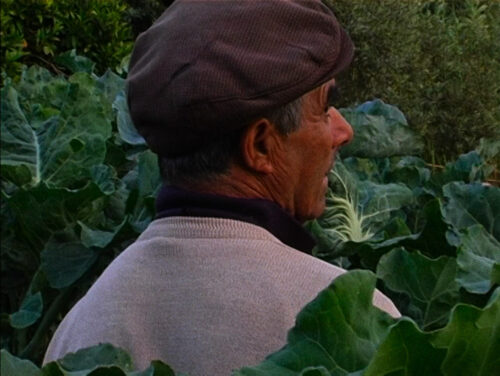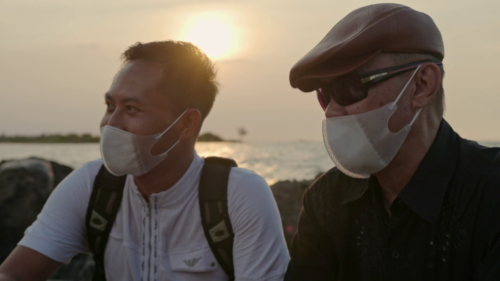Yogyakarta, 16 November 2022 – DOC Forum program, an intensive workshop attended by the film community, was entering its second day. The meeting, which was held at the GAIA Cosmo Hotel, brought up the topic of the sustainability of a festival concerning the identity of the city where it is held. Titled “Festival dan Kota” and presenting Alia Swastika as a guest speaker, this forum discussed how a festival as a celebration involving all people from all walks of life has characteristics that can highlight the identity of a city.

Beginning with a brief introduction to the biennale–an art event that is held worldwide every two years–the speakers began to associate the characteristics of the festival with the city’s identity. In Cuba, Havana, the biennale was used as a forum to demonstrate the characteristics of the city, which are closely related to the acceptance of socialism and the rejection of capitalism. They produced works of art that represent third-world countries. The same thing happened in South Korea, the city of Hangzhou took part in holding a biennale with a theme closely related to a political revolution amid dictatorial oppression in the 80s. Based on these two examples, the guest speaker concluded that the government could manipulate the festival for political purposes.
There are many requests from the government to hold a festival, from enhancing local pride to growing and expanding tourism. These indicators are very program-oriented, in light of commercial, economic language focusing on quantitative gains but on welfare. Amidst these indicators, the guest speaker raised a question of whether the government’s goals like this are a manifestation of the wishes of the film community. Harun Rumbarar, a representative for Papuan Voices, the Papuan film community, believed that the purpose of his community in organizing the festival is as a form of retribution for the many films that participate. Apart from that, Aceh Documentary provided a different view of their desire to arouse interest in films among the public. These answers indicate the separation of ideas from the government and film community participants.

“If there is no collaboration with the government, apart from their monetary contribution, what do we want to do?” This reflective question was followed by an elaboration explanation from the guest speaker. Various experiences in attending film festivals made the guest speaker reflect on the purpose of holding a festival. It was said that there were four important criteria: interpreting and imagining space, cultivating solidarity, rewriting history, and building identity from the ground up. Interpreting and imagining space described how we can visit new spaces with a festival and help build a distinct impression of that space. Meanwhile, the criteria for cultivating solidarity, such as the current DOC Forum, allowed the film community to learn about the locality of problems elsewhere and build empathy and solutions to common problems.
The criteria of rewriting history and building identity from the ground up cannot be separated from the rise of the government’s role in a film festival. The ability of a film festival to provide new perspectives to the public allows for politicization if the curator decides to involve government-made propaganda to rewrite or even justify dark history. In addition, building identity from the ground up contradicts the government’s role, which is basically motivated from above, not from below.

The guest speaker’s presentation was closed with presentations from each film community to map aspects that correspond to the four factors above. Of the four factors, two things highlighted were aspects of interpretation and imagination of space. The film community visualized an open space where all walks of life, from SMEs to the local community, can contribute. Furthermore, in rewriting history, it was said that it is important that the local community is involved in imagining a new identity free from government restraints.



